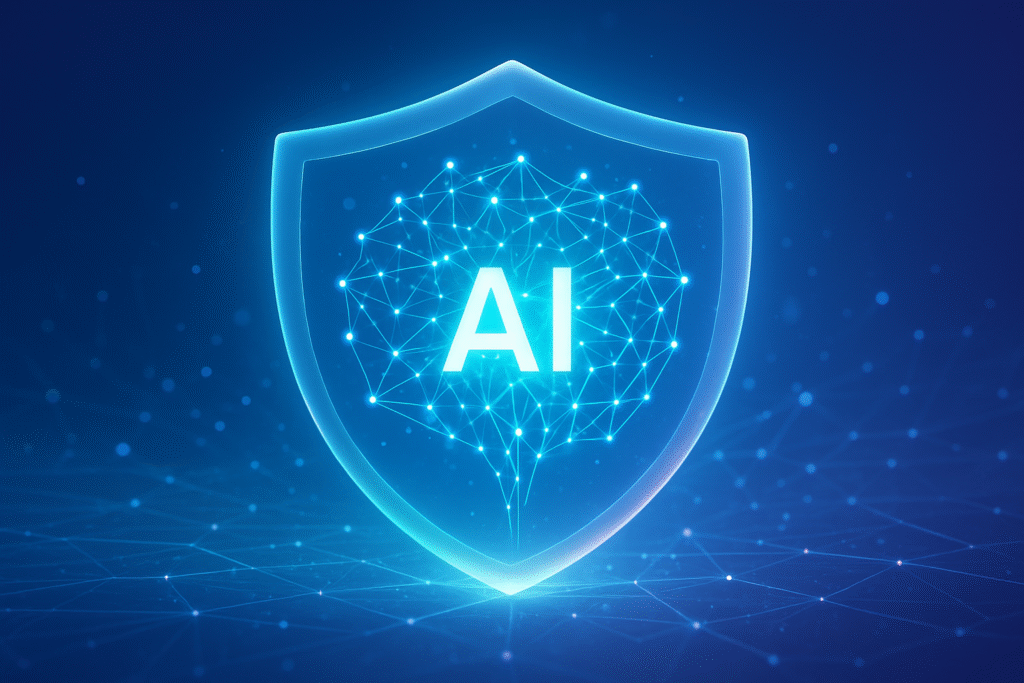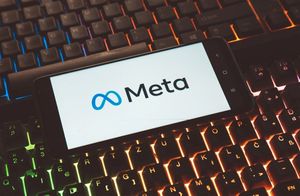
In a significant move poised to reshape the landscape of AI interaction with young users, Character.AI, a prominent AI chatbot platform, announced today, Wednesday, October 29, 2025, that it will ban all users under the age of 18 from engaging in open-ended chats with its AI companions. This drastic measure, set to take full effect on November 25, 2025, comes as the company faces intense regulatory pressure, multiple lawsuits, and mounting evidence of harmful content exposure and psychological risks to minors. Prior to the full ban, the company will implement a temporary two-hour daily chat limit for underage users.
Character.AI CEO Karandeep Anand expressed regret over the decision, stating that while removing a key feature, these are "extraordinary steps" and, in many ways, "more conservative than our peers." The company's pivot reflects a growing industry-wide reckoning with the ethical implications of AI, particularly concerning vulnerable populations. This decision underscores the complex challenges AI developers face in balancing innovation with user safety and highlights the urgent need for robust safeguards in the rapidly evolving AI ecosystem.
Technical Overhaul: Age Verification and Safety Labs Take Center Stage
The core of Character.AI's (private company) new policy is a comprehensive ban on open-ended chat interactions for users under 18. This move signifies a departure from its previous, often criticized, reliance on self-reported age. To enforce this, Character.AI is rolling out a new "age assurance functionality" tool, which will combine internal verification methods with third-party solutions. While specific details of the internal tools remain under wraps, the company has confirmed its partnership with Persona, a leading identity verification platform used by other major tech entities like Discord (private company), to bolster its age-gating capabilities. This integration aims to create a more robust and difficult-to-circumvent age verification process.
This technical shift represents a significant upgrade from the platform's earlier, more permissive approach. Previously, Character.AI's accessibility for minors was a major point of contention, with critics arguing that self-declaration was insufficient to prevent underage users from encountering inappropriate or harmful content. The implementation of third-party age verification tools like Persona marks a move towards industry best practices in digital child safety, aligning Character.AI with platforms that prioritize stricter age controls. The company has also committed to funding a new AI Safety Lab, indicating a long-term investment in proactive research and development to address potential harms and ensure responsible AI deployment, particularly concerning content moderation and the psychological impact of AI on young users.
Initial reactions from the AI research community and online safety advocates have been mixed, with many acknowledging the necessity of the ban while questioning why such measures weren't implemented sooner. The Bureau of Investigative Journalism (TBIJ) played a crucial role in bringing these issues to light, with their investigation uncovering numerous dangerous chatbots on the platform, including characters based on pedophiles, extremists, and those offering unqualified medical advice. The CEO's apology, though significant, highlights the reactive nature of the company's response, following intense public scrutiny and regulatory pressure rather than proactive ethical design.
Competitive Implications and Market Repositioning
Character.AI's decision sends ripples through the competitive landscape of AI chatbot development, particularly impacting other companies currently under regulatory investigation. Companies like OpenAI (private company), Google (NASDAQ: GOOGL), and Meta (NASDAQ: META), which also operate large language models and conversational AI platforms, will undoubtedly face increased pressure to review and potentially revise their own policies regarding minor interactions. This move could spark a "race to the top" in AI safety, with companies striving to demonstrate superior child protection measures to satisfy regulators and regain public trust.
The immediate beneficiaries of this development include age verification technology providers like Persona (private company), whose services will likely see increased demand as more AI companies look to implement robust age-gating. Furthermore, AI safety auditors and content moderation service providers may also experience a surge in business as companies seek to proactively identify and mitigate risks. For Character.AI, this strategic pivot, while initially potentially impacting its user base, is a critical step towards rebuilding its reputation and establishing a more sustainable market position focused on responsible AI.
This development could disrupt existing products or services that have been popular among minors but lack stringent age verification. Startups in the AI companion space might find it harder to gain traction without demonstrating a clear commitment to child safety from their inception. Major tech giants with broader AI portfolios may leverage their existing resources and expertise in content moderation and ethical AI development to differentiate themselves, potentially accelerating the consolidation of the AI market towards players with robust safety frameworks. Character.AI is attempting to set a new, albeit higher, standard for ethical engagement with AI, hoping to position itself as a leader in responsible AI development, rather than a cautionary tale.
Wider Significance in the Evolving AI Landscape
Character.AI's ban on minors is a pivotal moment that underscores the growing imperative for ethical considerations and child safety in the broader AI landscape. This move fits squarely within a global trend of increasing scrutiny on AI's societal impact, particularly concerning vulnerable populations. It highlights the inherent challenges of open-ended AI, where the unpredictable nature of conversations can lead to unintended and potentially harmful outcomes, even with content controls in place. The decision acknowledges broader questions about the long-term effects of chatbot engagement on young users, especially when sensitive topics like mental health are discussed.
The impacts are far-reaching. Beyond Character.AI's immediate user base, this decision will likely influence content moderation strategies across the AI industry. It reinforces the need for AI companies to move beyond reactive fixes and embed "safety by design" principles into their development processes. Potential concerns, however, remain. The effectiveness of age verification systems is always a challenge, and there's a risk that determined minors might find ways to bypass these controls. Additionally, an overly restrictive approach could stifle innovation in areas where AI could genuinely benefit young users in safe, educational contexts.
This milestone draws comparisons to earlier periods of internet and social media development, where platforms initially struggled with content moderation and child safety before regulations and industry standards caught up. Just as social media platforms eventually had to implement stricter age gates and content policies, AI chatbot companies are now facing a similar reckoning. The US Federal Trade Commission (FTC) initiated an inquiry into seven AI chatbot companies, including Character.AI, in September, specifically focusing on child safety concerns. State-level legislation, such as California's new law regulating AI companion chatbots (effective early 2026), and proposed federal legislation from Senators Josh Hawley and Richard Blumenthal for a federal ban on minors using AI companions, further illustrate the intensifying regulatory environment that Character.AI is responding to.
Future Developments and Expert Predictions
In the near term, we can expect other AI chatbot companies, particularly those currently under FTC scrutiny, to announce similar or even more stringent age restrictions and safety protocols. The technical implementation of age verification will likely become a key competitive differentiator, leading to further advancements in identity assurance technologies. Regulators, emboldened by Character.AI's action, are likely to push forward with new legislation, with the proposed federal bill potentially gaining significant momentum. We may also see an increased focus on developing AI systems specifically designed for children, incorporating educational and protective features from the ground up, rather than retrofitting existing models.
Long-term developments could include the establishment of industry-wide standards for AI interaction with minors, possibly involving independent auditing and certification. The AI Safety Lab funded by Character.AI could contribute to new methodologies for detecting and preventing harmful interactions, pushing the boundaries of AI-powered content moderation. Parental control features for AI interactions are also likely to become more sophisticated, offering guardians greater oversight and customization. However, significant challenges remain, including the continuous cat-and-mouse game of age verification bypasses and the ethical dilemma of balancing robust safety measures with the potential for beneficial AI applications for younger demographics.
Experts predict that this is just the beginning of a larger conversation about AI's role in the lives of children. There's a growing consensus that the "reckless social experiment" of exposing children to unsupervised AI companions, as described by Public Citizen, must end. The focus will shift towards creating "safe harbors" for children's AI interactions, where content is curated, interactions are moderated, and educational value is prioritized. What happens next will largely depend on the effectiveness of Character.AI's new measures and the legislative actions taken by governments around the world, setting a precedent for the responsible development and deployment of AI technologies.
A Watershed Moment for Responsible AI
Character.AI's decision to ban minors from its open-ended chatbots represents a watershed moment in the nascent history of artificial intelligence. It's a stark acknowledgment of the profound ethical responsibilities that come with developing powerful AI systems, particularly when they interact with vulnerable populations. The immediate catalyst — a confluence of harmful content discoveries, regulatory inquiries, and heartbreaking lawsuits alleging AI's role in teen self-harm and suicide — underscores the critical need for proactive, rather than reactive, safety measures in the AI industry.
This development's significance in AI history cannot be overstated. It marks a clear turning point where the pursuit of innovation must be unequivocally balanced with robust ethical frameworks and child protection. The commitment to age verification through partners like Persona and the establishment of an AI Safety Lab signal a serious, albeit belated, shift towards embedding safety into the core of the platform. The long-term impact will likely manifest in a more mature AI industry, one where "responsible AI" is not merely a buzzword but a foundational principle guiding design, development, and deployment.
In the coming weeks and months, all eyes will be on Character.AI to see how effectively it implements its new policies and how other AI companies respond. We will be watching for legislative progress on federal and state levels, as well as the emergence of new industry standards for AI and child safety. This moment serves as a powerful reminder that as AI becomes more integrated into our daily lives, the imperative to protect the most vulnerable among us must remain paramount. The future of AI hinges on our collective ability to foster innovation responsibly, ensuring that the technology serves humanity without compromising its well-being.
This content is intended for informational purposes only and represents analysis of current AI developments.
TokenRing AI delivers enterprise-grade solutions for multi-agent AI workflow orchestration, AI-powered development tools, and seamless remote collaboration platforms.
For more information, visit https://www.tokenring.ai/.





